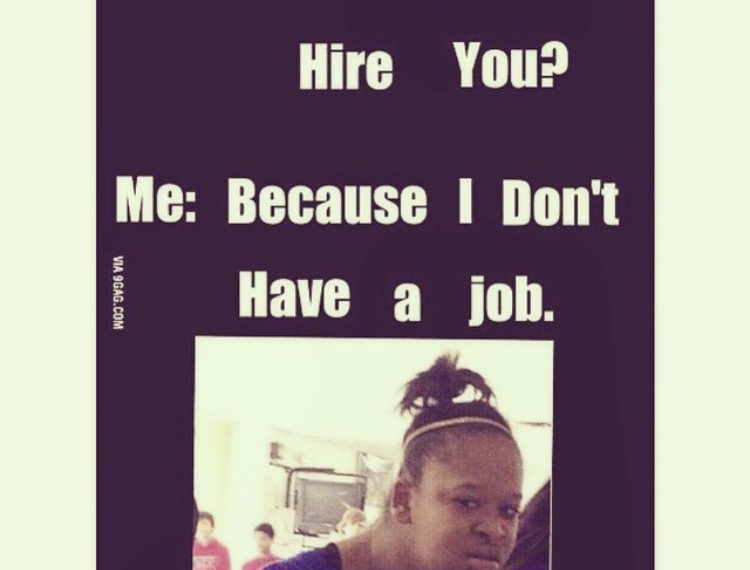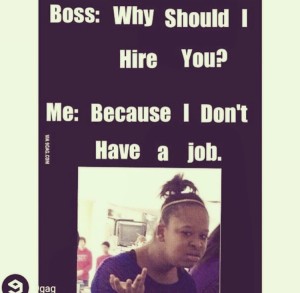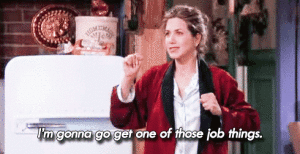If you’re like most people out there, you’re probably one of two things. Unemployed and looking for a job, or employed, but looking to get another, better job. Well, The Blogery is here to make things a littleeeee bit smoother for you.
Everyone knows the application process is a total b**tch. It takes hours and hours to fill out what seems to be the world’s dumbest questionnaire. “Why do you want to work at CVS…Answer: Because I love stocking tampons in aisle 7” *Insert majorly sarcastic emoji face* Don’t you wish you could really say, “It’s because I need a damn job and even though I have a degree and years of sweat, blood, tears and student loan debt to last me a century…this is the only place that called me back.” Yeah, don’t we all…
There is almost no truer statement than “looking for a full-time job IS a full-time job.” It truly is just that, something that consumes hours of your day. It’s a long and tedious process that seems like it never brings any real results. After personally speaking with a close friend of mine, who happens to be the HR Director of a major company, she informed me that the resume is a crucial part of the hiring process. Not that, that comes as a surprise to most, but she stressed the importance of the format, information given/not given, wording, etc. Once I tweaked my own resume to the format she provided me with, I was getting call backs on the weekly basis!
I could go on all day about the specifics of what exactly your resume should look like, but then, well… we would be here all day. If you do want to see my personal resume for help, email me @ The_Blogery@yahoo.com 😉
For now though, I will give you 4 tips on things NOT to put on your darling little resume…
::Don’t #1::
Stale Buzzwords
Recruiters hate the overuse of stale buzzwords, especially “proactive,” “team player,” and “self-motivated.” Seasoned interviewers understand how to find out whether you are proactive, self-motivated, or a team player by asking the right situational questions during an interview. The buzzwords that you use in your resume should directly correspond to your professional vocation. For an accountant, the buzzword can be “accurate.” Restaurant managers should consider using the buzzword “multitasking.”
::Don’t #2::
Weird Fonts & Ugly Colors
You want your resume to stand out, but not for the wrong reasons. Weird fonts turn off recruiters, unless you seek employment with a graphic design team. Since most resumes undergo some type of computerized scanning, you must avoid the crazy looking fonts and stick with standard fonts that include Arial, Cambria, and Times New Roman. Stay away from using any color other than black for the typeface. Your email address or website domain may turn blue as a link, but other information should remain black. Never bold the entire resume, just the headings that define each resume section.
::Don’t #3::
Hobbies
If you apply for an accountant position, the recruiter in charge of scheduling interviews cares nothing at all that you enjoy water skiing, movie going or long walks on the beach. In fact, you can expect recruiters to stop reading your resume, when they come to the “Hobbies” section. The discussion of your hobbies might happen during one of the interviews, most likely the final interview that you receive a job offer. Recruiters only want to know about your professional interests and even that information should remain in the domain of an interview.
::Don’t #4::
Taking a Stroll Down Memory Lane
Way too many job applicants add jobs that go back more that 15 years or even further back to an era that was devoid of the Internet. If you have worked at your current job for more than 10 years, that is the only job you need to include on your resume. Your experience at the one employer provides plenty of material for the “accomplishments” section of your resume. In addition, presenting multiple past jobs that span only a few years indicates to recruiters that you have a bad job history.
The most effective resumes include name, primary phone number, and one email address at the top of the page. Then, a one-sentence career objective follows that succinctly describes your professional goals. After the concise career objective, add your job history and professional accomplishments. There is no need to include at the bottom of your resume “References upon request.” If a recruiter wants reference, he or she will ask you for three or more personal and professional references.
There you have it my friends. Four simple things to tweak on your resume! I’m sure we all have the above mistakes on our resumes (I sure did.) Now that you have the knowledge bestowed upon you, go make those corrections and get yourself a job! 😉
Happy Job Hunting!!!
Subscribe|Share|StayHappy
0






Great tips! I got some of the same feedback from a GE HR personnel. These will definitely improve one’s resume.
Thank you lovely subscriber ;). Listen… trying to help safe lives, ONE DAY AT A TIME! hahahah
This is AWESOME !